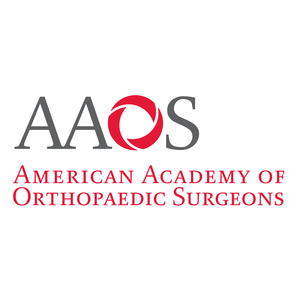ROSEMONT, Ill., Sept. 9, 2020 /PRNewswire/ -- September ushers in autumn, back-to-school and National Yoga Month. For yoga enthusiasts, it is the opportunity to further challenge the body's strength, balance and posture. For others, it is the chance to experience the whole mind-body exercise with numerous musculoskeletal health benefits. The experts at the American Academy of Orthopaedic Surgeons (AAOS) say the rewards of basic yoga outweigh the potential physical risks, as long as you take caution and perform the poses in moderation, according to your individual flexibility level. With the right preparedness, yoga can calm, stretch and strengthen your muscles and joints this month and beyond.
"Chances are your gym or workout routine was derailed by the coronavirus and you may be looking for an at-home friendly workout to stay active. Yoga can be a socially distant friendly exercise, but also one that helps create a strong balance between your mental and musculoskeletal health no matter your age or experience level," explains orthopaedic sports medicine surgeon and AAOS spokesperson Alan Reznik, MD, FAAOS. "That said, before you try a downward-facing dog pose, you need to know the risks of yoga, the appropriate types of yoga for you and ways to stay injury free."
Yoga offers increased flexibility, muscle strengthening and toning, as well as heightened relaxation and increased concentration. However, despite its reputation as a gentle, low-impact practice, it also carries risks, as with any exercise routine.
According to the National Electronic Injury Surveillance System (NEISS), in 2019, emergency departments, doctors' offices and clinics treated 34,971 patients for yoga-related injuries. The practice can exacerbate carpal tunnel syndrome, add instability to joints, and contribute to strains, sprains and tendonitis. Muscle damage may include strain and overstretching of the neck, shoulders, spine, legs and knees.
"Remember if you have an injured joint or arthritis you can still participate in yoga. Most expert instructors can help you modify the poses to suit your specific needs," added Dr. Reznik. "Keeping your knees bent and using blocks for seated positions can aid in the enjoyment of the physical benefits of yoga even when your joints are stiff."
The AAOS recommends the following tips to prevent yoga-related injuries:
- If you have any medical conditions or injuries, speak to your doctor before participating in any yoga.
- Learn what type of yoga you are performing. There are many different forms of yoga, some more strenuous than others. It is important to learn which type of yoga will best suit your needs.
- Select the class level that is appropriate for you. Beginners should start slowly and learn the basics first – such as breathing – rather than trying to stretch too far.
- Wear appropriate clothing that allows for proper movement.
- Warm up thoroughly before a yoga session – cold muscles, tendons, and ligaments are vulnerable to injury.
- If you are unsure of a pose or movement, ask questions.
- Know your limits. Do not try positions beyond your experience or comfort level.
- Keep hydrated by drinking plenty of fluids, especially if participating in "hot" yoga.
- Listen to your body. If you are experiencing pain or exhaustion while participating in yoga, stop or take a break. If pain persists, talk to your doctor.
To schedule an interview with an AAOS expert about common musculoskeletal injuries resulting from yoga, email [email protected].
About the AAOS
With more than 39,000 members, the American Academy of Orthopaedic Surgeons is the world's largest medical association of musculoskeletal specialists. The AAOS is the trusted leader in advancing musculoskeletal health. It provides the highest quality, most comprehensive education to help orthopaedic surgeons and allied health professionals at every career level to best treat patients in their daily practices. The AAOS is the source for information on bone and joint conditions, treatments and related musculoskeletal health care issues and it leads the health care discussion on advancing quality.
Follow the AAOS on Facebook, Twitter, LinkedIn and Instagram.
SOURCE American Academy of Orthopaedic Surgeons

Related Links
WANT YOUR COMPANY'S NEWS FEATURED ON PRNEWSWIRE.COM?
Newsrooms &
Influencers
Digital Media
Outlets
Journalists
Opted In





Share this article